Real economy targeted in bid to create job opportunities
Support measures will help ensure every worker has the skills to guarantee employment

Workers affected by industrial restructuring or trade frictions will be quickly included in China’s public employment service system, to help improve their prospects, while new growth drivers will be further cultivated to provide more high-quality jobs, according to a new guideline.
Though the current job market is stable, the document is aimed at countering risks brought by challenges that may arise from the domestic industrial restructuring as well as uncertainties in the international community, experts said.
The guideline was released last week by 17 State Council departments, led by the National Development and Reform Commission, aiming to inject new vitality into the world’s second-largest economy and improve people’s lives by ensuring growth of the real economy and their incomes.
The 10-clause guideline urged to develop new businesses, including smart manufacturing and digital economy, transform traditional industries and encourage business startups to provide more and higher-quality jobs. It also called to accelerate the agricultural supply-side structural reform to make new-type farmers. People are encouraged to start their businesses after returning homes, while urbanization should be promoted to expand employment for those living nearby cities.
The most eye-catching part was that more concerted efforts will be made to help enterprises that have advanced technologies and push forward its industrial upgrading, but are in temporary difficulties resulting from trade frictions.
These enterprises were encouraged to keep as many current posts as possible for employees. The employment subsidies should be fully used to embrace people affected by industrial restructuring and trade frictions.
Employment has been a priority for the central government.
In the past five years, more than 66 million new jobs were created in urban areas, according to the Ministry of Human Resources and Social Security.
Last year, the income per capita went up by 7.3 percent year on year, outpacing the economic growth, while 13.51 million jobs were created for those living in urban areas.
In his Government Work Report delivered in March, and Premier Li Keqiang set a target of more than 11 million new jobs in urban areas for this year and controlling the urban surveyed unemployment within 5.5 percent.
Li said in the report that the annual GDP growth target of around 6.5 percent is able to ensure full employment.
Exports contribute much to economic growth and also the job market considering the country’s large working population, said Chen Fengying, a senior global economy researcher at the China Institutes of Contemporary International Relations.
Trade frictions may lead to difficulties in the real economy, especially for some manufacturing sectors with major overseas customers, Chen said.
Uncertainties brought about by the frictions could hurt domestic employment as manufacturers will have to cut some jobs if faced with rising costs and shrinking profits, she said.
The guideline had detailed ways to spur job creation and maintain stability in the labor market by stabilizing market expectations and providing supportive measures, Chen said.
It can be seen as a pivotal move to prevent risks in the decline of new jobs, she said, adding that this year’s targets should be fulfilled if all measures are properly carried out.
In the first half of this year, GDP grew by 6.8 percent, compared to the same period last year, according to the National Bureau of Statistics.
From January to May, the number of new jobs in urban areas hit 6.13 million, 56 percent of the year’s target, while 2.3 million unemployed people in cities found new jobs.
As administrative and business reforms proceed in the country, new growth drivers are emerging to boost employment with a large number of newly-registered market entities, said Mo Rong, deputy president of the Chinese Academy of Labor and Social Security. The first quarter saw 1.32 million new enterprises being registered and business startups have continuously increased employment, he said.
By Hu Yongqi | China Daily |
Vaccine company paid bribes
Courts report 10 cases in which purchasers were offered money
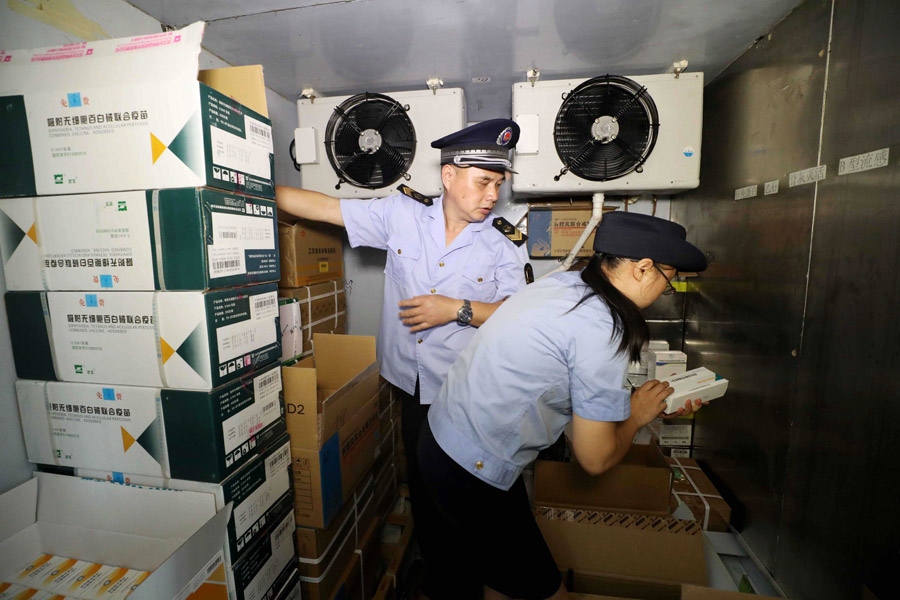
A listed pharmaceutical company being probed over a vaccine scandal has been involved in several cases of bribery in recent years, even as its profits soared, public records show.
Changchun Changsheng Bio-tech Co and its parent company, Changsheng Biotech, have been mentioned in at least 10 bribery-related cases in the past decade, according to China Judgment Online, a web-accessible database that discloses court rulings. China Daily searched the database on Monday.
The judgments in the criminal cases say the company’s employees or distributors paid money to people responsible for buying vaccines, including those working in hospitals or disease control departments at the county or city level, to be given priority in vaccine purchases.
For example, a court in Ningling county, Henan province, ruled in September that a man surnamed Song, who worked for a disease prevention and control center in Suixian county, had accepted bribes of more than 1 million yuan ($147,000) from several vaccine makers or agencies since July 2011, including 124,680 yuan from Changchun Changsheng Bio-tech.
Song was sentenced to 18 months in prison for bribery and fined 200,000 yuan, the court information said.
In November, Xiashan District People’s Court in Zhanjiang, Guangdong province, sentenced a woman in charge of vaccinations at a hospital to 18 months with an 18-month reprieve for bribery after she received illicit profits from the company’s chickenpox vaccine agency.
But in all cases, the companies that paid the bribes were rarely prosecuted, as the amount of money offered was not enough to draw a harsher penalty under the law, and the company was not the only one to offer a bribe.
Despite being involved in several criminal cases, the company’s recent profits have not been affected. Instead, it rose rapidly, especially after it went public on the Shenzhen Stock Exchange.
The company’s 2017 annual report said it earned profits of 566 million yuan, up 33.3 per-cent year-on-year. It spent 583 million yuan for sales expenses – representing 60 percent of its total expenses. Of that, 442 million yuan was spent on promotion, the report said.
Chinese media reported that the company had been ordered to cease operations on Sunday after it came under investigation, but a security guard at the company said employees are “still working”.
Several cars, including a police car, went in and out of the company compound, located in a high-tech zone in Changchun, Jilin province, on Monday.
“The factory is not taking days off,” the security guard said, declining to add more detail. He added that everyone is awaiting the result of the investigation.
By Han Junhong in Changchun and Cao Yin in Beijing | China Daily |
Young woman leading fight to keep wetland healthy
Recognition from pair of renowned tech tycoons boosts her resolve

Wang Chunli was thrilled to receive a letter from the “Two Mas” – Alibaba founder Jack Ma Yun and Tencent CEO Pony Ma Huateng.
As the co-chairmen of the Paradise Foundation, an environmental NGO also supported by other famous entrepreneurs, the two tech tycoons praised Wang’s contributions to ecological conservation in the Xianghai National Nature Reserve in Tongyu county, Jilin province.
For the past two years, Wang, 28, has been struggling to protect the balance between man and nature, with the former’s developmental aspirations often coming at the latter’s expense.
“Congratulations! You’ve won the Three-Class Merit Award for ecologically sound civil construction by your local government,” they wrote in the letter. “It is also a great honor for our foundation.”
Established in 1981, the reserve – located in western Jilin – is an important wetland for resting and breeding migratory birds.
Covering 1,054 square kilometers, the wetland attracts large populations of storks, swans, red-crowned cranes and white-tailed eagles.
In December 2016, the Paradise Foundation signed a 30-year agreement with the reserve and the Jilin government to establish the Xianghai Ecological Protection Center.
The center, which covers 175 sq km – about half of the reserve’s core zone – is directly managed by the foundation and supervised by the local government.
It is China’s first national nature reserve center directly managed by a nonprofit ecological conservation organization and supervised by a local government.
After finishing her master’s degree in nature reserve management at Northeast Forestry University in Harbin, Heilongjiang province, in June 2016, Wang was appointed by the foundation to the reserve to help manage the multiparty cooperation.
On her first visit, she was bowled over by the rich ecological assets, but shocked by the severe human impact.
At that time, about 20,000 residents were living in 12 villages within the reserve. The residents continued to engage in activities that were strictly prohibited, such as allowing sheep to graze freely, hunting rare birds and catching fish in the core zone.
“I realized it would take a great effort to change hearts and minds, but I really didn’t expect so many people would actually be allowed to reside in a nature reserve,” she said. “There were even residents living among the habitat of endangered red-crowned cranes and beside rare flora.”
When the center was founded, Wang became its director, and the first thing she did was recruit eight members for a patrol team from nearby villages.
“We had a plan to eliminate all harmful human activity in the reserve within five years,” she said. “The locals are the most familiar with the environment they live in, so I needed their help.
“What’s more important, the wetland will ultimately be managed by them. We will give it back to the local residents after helping them train a professional team.”
Wang leads the team to control illegal grazing, fishing and poaching in the reserve each day.
In 2017, they helped the local government investigate over 600 violations. A GPS system showed they walked more than 40,000 km during the year.
Wang still remembers a case in which they helped police catch a poacher who illegally possessed a firearm in the summer of 2017.
“During a foot patrol, the team found a car in the core zone,” she said. “Through the window, we noticed shotgun parts.”

They realized poachers were active in the area and reported the activity to the reserve administration.
“Before law enforcement officials arrived, we saw a man emerge from the water empty-handed,” Wang recalled. “My colleagues told me he lived in a nearby village and people all knew he owned a gun.”
Without any evidence, they couldn’t prevent him from driving away, but Wang believed he was hiding his weapon somewhere in the reserve.
“We decided to stay there to wait for him to get his gun back,” she said. “In fact, I knew it may be quite dangerous but I couldn’t hold back. Illegal acts would be even more brazen if we did nothing to confront such appalling behavior.
“For the entire night, I could feel there were people surrounding us. In fact, I was really scared because I didn’t know what they would do.”
Fortunately, nothing happened and the police found a shotgun in the water the next morning.
“After the poacher was sent to prison for illegally possessing a weapon, the villagers began to believe that we were really doing something for ecological conservation,” Wang said.
In the past few years, in addition to daily patrols, she has visited a number of nearby villages to explain the importance of ecological protection and learn about the needs of local residents.
“I found my words generally fall on deaf ears if I only tell them that the wetland acts as the Earth’s kidneys,” she said. “What they need more urgently is guidance on how to improve their lives if they change their traditional lifestyle away from overreliance on the reserve.”
Wang began to collect and send information about environmentally friendly industries to residents, such as growing organic grains and breeding chickens native to the area.
“More people changed their mindset and accepted new ideas,” she said.
Furthermore, during vacations, Wang set up three different centers in three villages to help students study and organize various activities.
“The college student interns and volunteers offered free tutoring to more than 130 local children, freeing up time for their parents to engage in different activities,” Wang said. “Moreover, the government has attempted to solve the problem with a resettlement project.”
Authorities demolished 248 homes, reverted 6,711 hectares of farmland to grassland, and provided 8,000 yuan ($1,190) annually as reimbursement for every hectare villagers gave up.
“The good news is that all the efforts are bearing fruit,” Wang said.
“Rare birds like the red-crowned cranes are returning in large numbers to the reserve, and residents’ awareness of ecological protection has gradually improved.”
By Zhou Huiying in Harbin and Han Junhong in Changchun | China Daily |
Soybeans hurt little by US tariff moves

Trade frictions between China and the United States will not cause a sharp rise in the price of soybeans – a major agricultural import for China – or their products in the domestic market, according to experts.
China announced in June that it would levy an additional 25 percent tariff on 659 goods worth $50 billion from the US – including agricultural products such as soybeans, pork and beef – in response to the US imposition of tariffs on $50 billion of Chinese goods. The measures took effect on July 6.
Soybeans are a major agricultural import for China. Last year, it imported more than 95 million metric tons, with a total value of nearly $40 billion – more than 30 percent of China’s total agricultural imports. Last year, Brazil and the US accounted for 53 percent and 34 percent respectively of the soybeans exported to China, according to the General Administration of Customs.
Zhong Funing, an agricultural economy professor at Nanjing Agricultural University, in Nanjing, Jiangsu province, said the measures would undoubtedly push up prices in the short term for soybeans and their products, such as soybean oil and pork, but not to a great extent. Soybeans are a source of pig feed.
“China’s soybean imports from the US have been decreasing over the past few years, despite an increase in the total amount of soybeans imported,” he said.
China relied on the US for 80 percent of its soybean imports two decades ago, but it has cut that more than in half because of increased imports from other countries, including Brazil, he said.
“The global supply of soybeans is experiencing a surplus, and China should not worry that it cannot import soybeans from the US,” Zhong said.
In the long run, the price of soybeans may be affected by many factors, such as possible changes in China-US trade relations, and are hard to predict, he said.
Yin Ruifeng, a senior soybean market analyst at the Ministry of Agriculture and Rural Affairs, said that with rising demand for edible vegetable oil, and meat and dairy products, demand for soybeans in China has continued to rise.
Tariffs will not cause a noticeable price increase for soybean oil sold in China – a major product made from imported soybeans – as it is easier to find alternatives and there is a global surplus of raw materials for edible oils, Yin said.
Because of the rise in the price in soybeans imported from the US, the price of soybeans imported from other countries may also increase, she said.
This may cause price increases for soybean meal – a major product of soybeans used as animal feed in China – which may push up the price of pork, a major meat consumed in the country, she said.
Some pig farmers are planning to use less soybean meal as feed and find alternatives, such as the remnants of rapeseeds or cotton seeds after oil extraction, as well as bone powder, to reduce the impact of any price increase or shortage of soybean meal, Yin said.
Trade frictions between China and the US have not greatly impacted agricultural prices in China yet, Mao Shengyong, spokesman for the National Bureau of Statistics, said at a news conference on Monday. But prices of imported soybeans may rise, and products related to soybeans, such as pork, eggs and edible oil may increase, he said.
By Wang Xiaodong | China Daily
Feed giant Gold Coin sold for $500 million
Parent Golden Springs Group retains a minority stake of 25%.
Golden Springs Group announced Friday it entered into a sale and purchase agreement to sell 75 percent of Gold Coin Management Holdings
to Pilmico International, a subsidiary of Aboitiz Equity Ventures (AEV), for $500 million (€428.7 million).
Gold Coin is one of the largest animal nutrition platforms in Asia Pacific, offering livestock feed, aqua feed. It is also involved in shrimp breeding
and the tilapia business with a minority stake in Regal Springs.
The group has operations across 11 countries and operates 20 feed production mills, with headquarters in Singapore.
Gold Coin’s aqua business, which makes shrimp nutrition products and owns shrimp genetics company SyAqua, has about $90 million (€77million) in annual sales.
Pilmico, the food arm of the Aboitiz Group, is ranked amongst the top three flour and animal nutrition producers in the Philippines. AEV is the
public holding company of the Aboitiz Group with major investments in power, banking and financial services, food, infrastructure, and land.
The transaction will see the start of a long-term partnership between Aboitiz Group and Golden Springs, which will continue to retain a 25 percent stake in Gold Coin.
“The Zuellig and Aboitiz families have known each other for generations,”said Peter Zuellig, chairman of Golden Springs. “I am excited about the
partnership with Aboitiz Group, one of the largest and most established conglomerates in the region. The partnership will strengthen Gold Coin’s
growth profile and long-term value creation potential.”
Golden Springs decided to retain a minority stake to ensure it is “able to participate in Gold Coin’s strong growth potential as it executes on its
expansion strategies together with Pilmico,” Zuellig added.
The acquisition will add 3 million metric tons of volume to Pilmico, which quadruples its overall feeds production capacity, said Sabin M. Aboitiz,
chief operating officer at AEV and president and chief executive officer at Pilmico.
“The integration of Gold Coin and Pilmico is expected to generate substantial synergies for both companies,” said Gerald Wilflingseder, general nanager at Gold Coin. “We look forward to working with Aboitiz and GSG to crystallize Gold Coin’s strategic vision.”Credit Suisse acted as GSG’s sole financial advisor on this transaction.
China to further improve its business environment
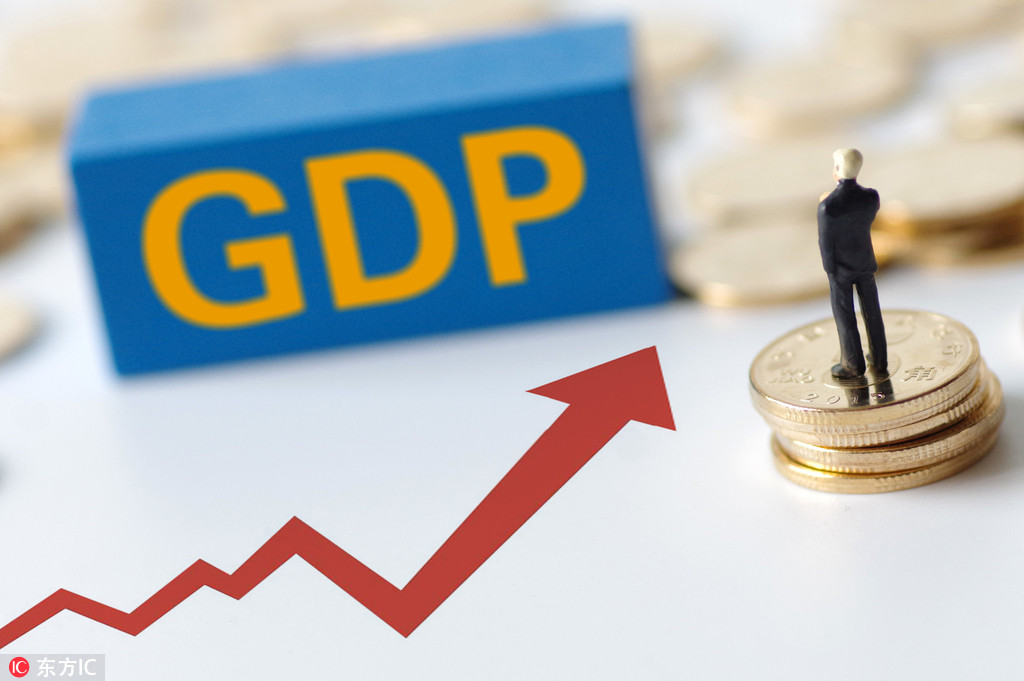
Government will delegate more power to foster healthy competition in market
China will tackle weak areas in its business environment to further improve the country’s overall competence and consolidate its stable and positive economic performance, the State Council decided on Wednesday at an executive meeting chaired by Premier Li Keqiang.
The State Council called for further boosting market vitality and delegating due powers to market entities to develop a level-playing field for competition.
“In the face of growing international competition, we must fully appreciate the pressing need for stepping up the reforms of our government’s functions, which are crucial for energizing market entities and grassroots initiative and for improving China’s overall business environment,” Li said at the meeting.
It was decided that another 17 administrative permits no longer will be required, including those to establish nursing homes for the elderly, declaring invalidity of business licenses and project approval for foreign businesses to invest in road transport, and work permits for Taiwan, Hong Kong and Macao residents to work on the mainland. Six of the 17 items will be revoked through applying for legal revisions.
Customs clearance and quarantine will be integrated by the end of 2018, and procedures for import and export registration will be streamlined. Statistics from the departments of market oversight and commerce will be used directly for customs registration.
Taxation procedures will be streamlined, and time required for enterprise tax payments will be reduced. Procedures required for immovable property registration will be completed within 15 working days, and time required for a mortgage registration will be shortened to within seven working days by the end of this year.
A new negative list for businesses will be issued, and any restrictions hampering a level-playing field for businesses will be abandoned. Market oversight and protection of property rights will be further strengthened. Negative lists detail what areas in which investment is not allowed.
“Our efforts in streamlining administration, delegating powers and improving government services boil down to striking a proper balance between the government and the market and truly allowing the market to play a decisive role in allocating resources,” Li pointed out. “Instead of redistributing powers among government departments, we should give full respect and delegate due powers to market entities.”
China will also carry out phased evaluations of the business environment across the country and offer further incentives for better performers. The 28 steps to improve the business environment that have worked well in some regions will be disseminated to encourage competition in the quality of business environment across the country.
“The market and our people will make the final judgment on the success of our efforts to streamline administration.” Li said. “A key responsibility of the government is to give timely response to public concerns and faithfully to live out our commitment to people-centered development.”
By Zhang Yue | China Daily | Updated: 2018-07-19 07:31
China works on enlarging its middle-income group
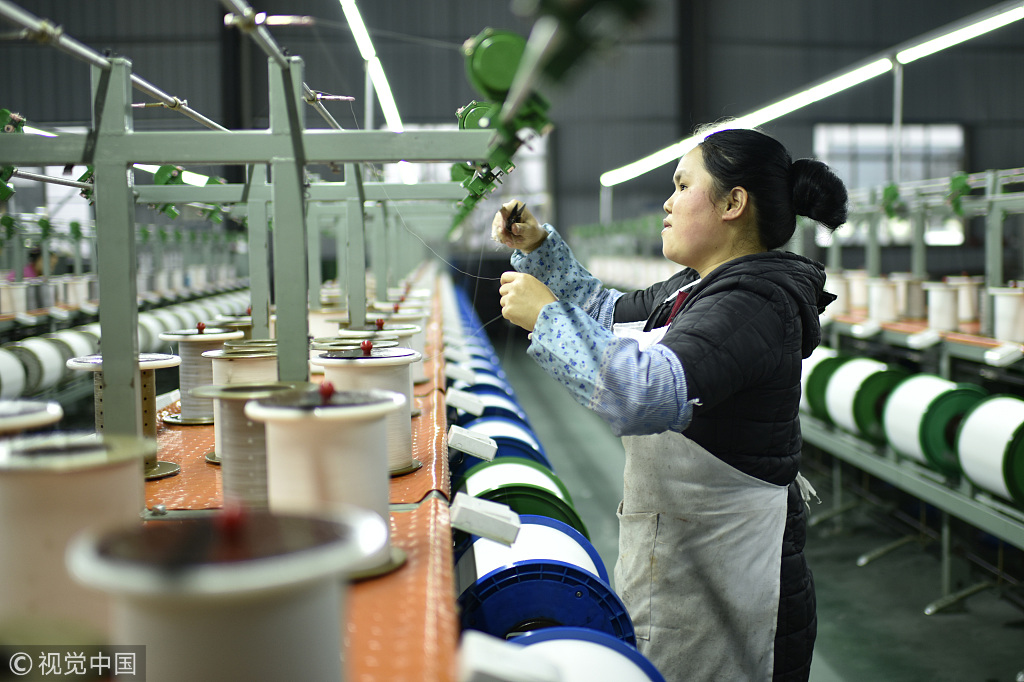
China is working on measures to enlarge its middle-income group, including increasing earnings for the low-income class, equalizing public services and reforming taxation, as Economic Information Daily reported Thursday.
The report cited data from the China Institute for Income Distribution of Beijing Normal University, showing that the middle-income class is expected to scale up to 43 percent in 2020 if there are no policy changes, while the figure could reach up to 50 percent with preferential policies.
To let more money go into the pockets of the low-income class is one means to strengthen the middle-class pool, exports told the newspaper. As of July, at least 12 provinces or regions have raised minimum wages, and six regions — including Shanghai, Guangdong, Beijing and Tianjin — have had their minimum wages exceed 2,000 yuan ($296.8) each month.
“The group with payment below the minimum level benefits most from the minimum wage adjustment scheme, but the policy also does good to higher-wage earners in some degree,” Wan Haiyuan, deputy dean with CIID, told Economic Information Daily.
He added that though it is reasonable to gradually increase the minimum income, blind augmentation will cause pressure on employment.
Li Shi, executive dean of CIID, said in an interview with the newspaper that farmers, migrant workers, self-employed entrepreneurs, small and micro business owners and startup pioneers all possess the potential to access to the middle-income level and should be the target of policy support.
At the same time, to break institutional barriers in the way to stretch up to middle income is also important. Li said that improving social security system and boosting human resources could help to promote low-income flow into the middle-income class, while government should create room for the existing middle-income group to move up by focusing on issues like occupational mobility and the steady rise of salaries.
“The individual income taxation structure still needs to be optimized to relieve burdens for the middle-income group,” Guan Bo, assistant researcher with the social development research institution of the National Development and Reform Commission, said to Economic Information Daily.
Guan noted that better quality in public services ranging from elder care, healthcare and education and lowered expenses are needed to stabilize the group.
The crucial cause of income disparity is education, according to Sun Jingfang, assistant researcher with the Chinese Academy of Social Sciences, as Economic Information Daily reported.
Sun said that government should advance education equalization, and improve education quality in rural areas in particular, so as to lay a foundation of human resources for expanding the middle-income group and economic development.
By Tan Xinyu | chinadaily.com.cn | Updated: 2018-07-19 14:22
New regulation to boost employment
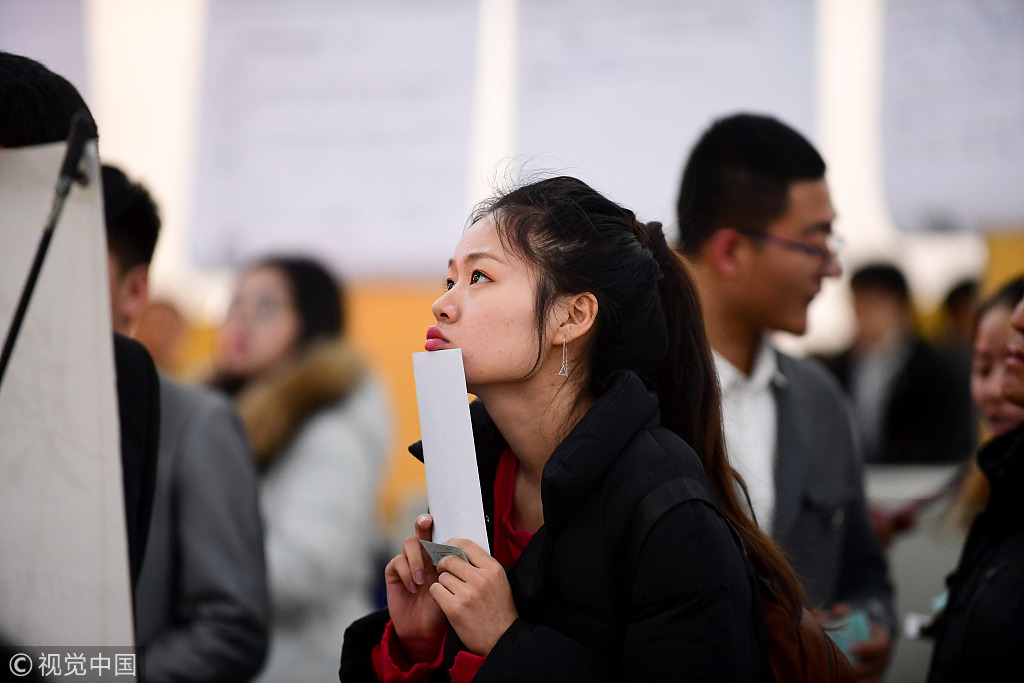
Rules aim to clarify role of government, improve development of job agencies
A regulation governing the human resource market will take effect in October to improve employment agency services, help maintain the rise in job opportunities and boost economic upgrading, senior officials said on Tuesday.
The regulation, signed by Premier Li Keqiang, is the first of its kind since reform and opening-up, said Zhang Yizhen, vice-minister of human resources and social security, at a policy briefing hosted by the State Council Information Office.
For the first time, the regulation aims to improve the development of China’s human resource service sector by clearly defining the range of services, behavior norms, management requirements and the role of the government, while attracting the participation of the private sector, said Zhang.
“In drafting the regulation, we have widely solicited opinions online from the public and suggestions from ministries, local governments and industry associations,” said Du Yaling, director of the department for social management legislation of the Ministry of Justice.
Changes had been made to the draft based on feedback from employment agencies, companies and their employees and experts, Du said.
Recent years have seen a surge in job seekers, including key groups such as college graduates and migrant workers. More than 66 million jobs were created in urban areas over the past five years.
This year, more than 8 million college graduates are looking for jobs along with more than 4 million vocational school graduates and millions of migrant workers.
Li reiterated that China has the largest human resources in the world and opportunities should be created by using the market to achieve an orderly flow of talent. All regions and departments should take diverse measures to ensure this year’s target of 11 million jobs in urban areas is fulfilled, he said at a State Council executive meeting on July 4.
By the end of last year, more than 30,000 employment agencies existed in China, earning revenue of 1.44 trillion yuan ($215 billion) and employing more than 580,000 people, according to the Ministry of Human Resources and Social Security.
These institutions provided services to 31.9 million companies and more than 200 million people in getting jobs or starting their own businesses. They also held more than 220,000 job fairs, provided more than 100 million pieces of employment information and served more than 110 million job seekers.
However, to achieve high-quality development, there is still a gap between reality and expectations, Zhang said. Many job agencies are small and fall short in using new technologies such as big data, cloud computing and mobile internet, she said.
Therefore, a new regulation is vital for improving China’s human resources markets, promoting a free and healthy flow of talent and better serving employment and high-quality development, she said.
By Hu Yongqi | China Daily |
Do something for the environment. It’s ours

Hong Kong people, especially the younger generation, talk all the time about the need to protect the environment in this city of seven million. But, they’re willing to sacrifice very little in doing that.
Take plastic waste for instance. Every day in Hong Kong, hundreds of thousands of styrofoam lunch boxes, along with plastic-coated cups and plastic straws, are discarded. They mostly end up in landfills that will become part of the land reclaimed from the sea.
Tons of meat, vegetables and fish are transported in large styrofoam cartons that are dumped onto the streets or in the sea after use. Pieces of these offensive white plastics can be seen at all times floating on the murky waters near the fish market in Aberdeen typhoon shelter.
There is a law requiring vendors to charge customers for one-use plastic bags. But, the charge, at 50 Hong Kong cents (about 6 US cents) apiece is too insignificant for most shoppers to care about.
While most other major world cities, including New York, London and Shanghai, are passing stricter and stricter laws to cut down the use of plastic materials, Hong Kong is sitting tight doing precious little other than complaining.
Some city authorities have banned the use of plastic straws which have long been the target of environmentalists. Discarded plastic straws, which usually end up in the ocean, are listed by environmental groups as one of the top 10 waste items found on beaches.
Coffee and tea cups have also been targeted by environmentalists, prompting some coffee outlets like Starbucks in some cities to charge customers a fee for using disposal cups. They also try to offer discounts for customers who bring their own reusable cups.
Do Hong Kong people care? Certainly not the fast-food joints which continue to provide customers with one-use plastic utensils, cups and straws. They also cater to many take-away customers who have no qualms about throwing away the styrofoam containers and plastic utensils after consuming their lunch or dinner.
Any proposal to restrict the use of plastics would trigger a storm of protests from the powerful business groups who would object to anything that could be seen to add to their costs.
Consumers will have to take the initiative to reject the use of disposable plastics for the sake of the environment.
By Peter Liang | chinadaily.com.cn |
Robust fundamentals boost Moutai
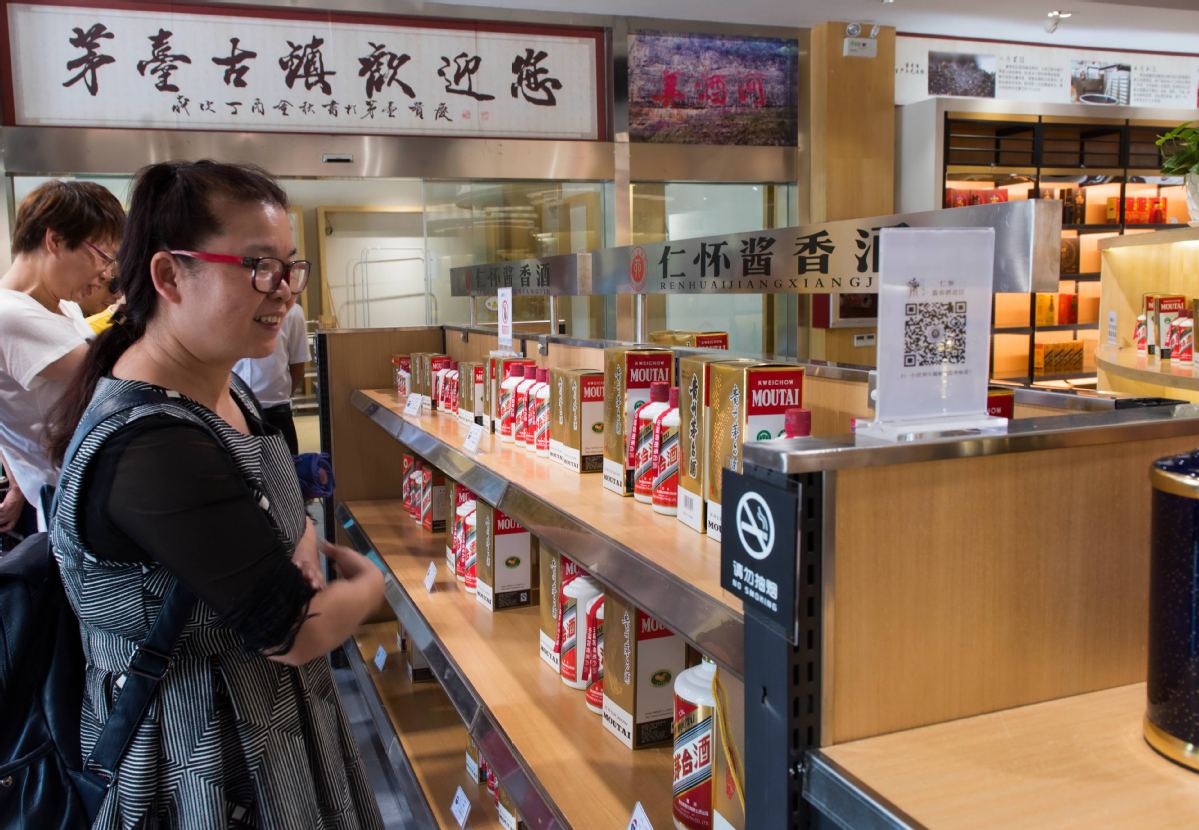
Distiller remains focused on balancing supply shortfall with soaring demand
Kweichow Moutai Co Ltd, China’s signature high-end spirit maker, netted double-digit growth rates for its major economic indicators in the first half of the year, the highest recorded in the past few years.
In the first six months of 2018, Moutai achieved sales revenue of 35 billion yuan ($5.23 billion), jumping 37 percent year-on-year. During the same period, the company’s net profits expanded by 40 percent, according to its statement released on Sunday.
Moutai, a distiller from Maotai town in Southwestern China’s Guizhou province, added that the figures are based on preliminary accounting data, meaning the final figures could differ. The company will disclose its official half-year earnings report at a later time.
Shanghai-listed Moutai closed 1.03 percent higher at 754.68 yuan per share on Monday, with a peak of 764.11 yuan during the day’s trading. Based on Monday’s closing price, the company’s valuation now stands at 948 billion yuan.
Earlier, it became the first consumer stock to achieve a market value exceeding 1 trillion yuan, higher than London-based Diageo Plc and Brazil-based Ambev SA.
Li Baofang, chairman of Moutai, said it is highly likely that the group will be able to achieve whole year sales revenue of 90 billion yuan in 2018. Next year, it is expected to achieve sales revenue of 100 billion yuan.
“The income of liquor products accounts for 94 percent of the group’s revenues, indicating that our competitive advantage and core strength are in our main business. For Moutai, it has completely transformed from a buyers’ market into a seller’s market,” he said.
“With strong demand and tight supply, we have been staying rational and trying to solve the difference between supply and demand, to help the market to maintain its balance.”
Moutai announced last year that it would raise the prices of its products by an average of 18 percent this year. Li said the market response after the company’s price adjustment is in line with expectations.
In the second half of the year, it is expected that supply will remain short of demand. As a result, balancing supply and demand will still remain the group’s major focus.
In the long term, Li said the company aims to further improve its business performance, raise competitiveness and soft power, and clear its sub-affiliates that are suffering losses or have become irrelevant.
A 500 milliliter bottle of Moutai’s classic Feitian 53 percent liquor that left the factory in 2015 now retails for 2,388 yuan on online platform JD. Earlier this year, the price of the same product was retailing for less than 2,000 yuan.
By ZHU WENQIAN/YANG JUN | China Daily |



